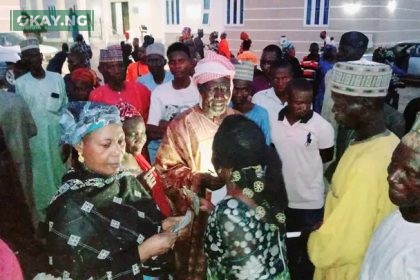Lagos residents woke up today to a stark reality: the cost of commuting via the Bus Rapid Transit (BRT) system has increased by a significant 18%. The Lagos State Metropolitan Transport Authority (LAMATA) attributed this hike to escalating operational costs, emphasizing the need to maintain service quality and ensure the continued movement of Lagosians.
While LAMATA cited rising operational expenses as the primary driver, the news has sent ripples of anxiety through the city’s commuting population. For many, this fare increase translates to a direct hit to their already strained budgets. Imagine the daily struggle of a low-income worker, now facing a steeper climb to afford their daily commute. The impact of this decision extends beyond mere transportation costs; it directly influences their disposable income and, ultimately, their quality of life.
“The fare rise which took effect today is because of the increased costs of operations and the need to ensure that buses keep running and guarantee movement around Lagos,” stated LAMATA in its official announcement.
This statement, while acknowledging the challenges faced by the transport authority, does little to assuage the concerns of commuters who are now grappling with the added financial burden. The increase, which translates to a jump from N900 to N1,062 for the Igando-Obalende route and from N500 to N590 for the Ikeja-Obalende route, will undoubtedly impact the daily lives of thousands of Lagosians.
Read Also: BRT Price Hiked by 18%, Effective Monday
This development comes amidst a period of rising inflation and economic uncertainty, adding another layer of stress to the lives of ordinary citizens. As the cost of living continues to soar, this fare increase will undoubtedly exacerbate the financial strain on many households.
It’s crucial for LAMATA to engage in transparent and open dialogue with commuters to address their concerns and explain the rationale behind this significant fare increase. Furthermore, the authority should explore alternative measures to mitigate the impact on low-income commuters, such as implementing targeted subsidies or introducing flexible fare structures.
The BRT system plays a vital role in the transportation infrastructure of Lagos, providing a crucial lifeline for millions of residents. However, maintaining the system’s viability while ensuring affordability for all commuters requires a delicate balancing act.
This fare increase serves as a stark reminder of the interconnectedness of economic realities and the daily lives of ordinary citizens. It underscores the importance of sustainable and equitable transportation solutions that prioritize the needs of the people they serve.












